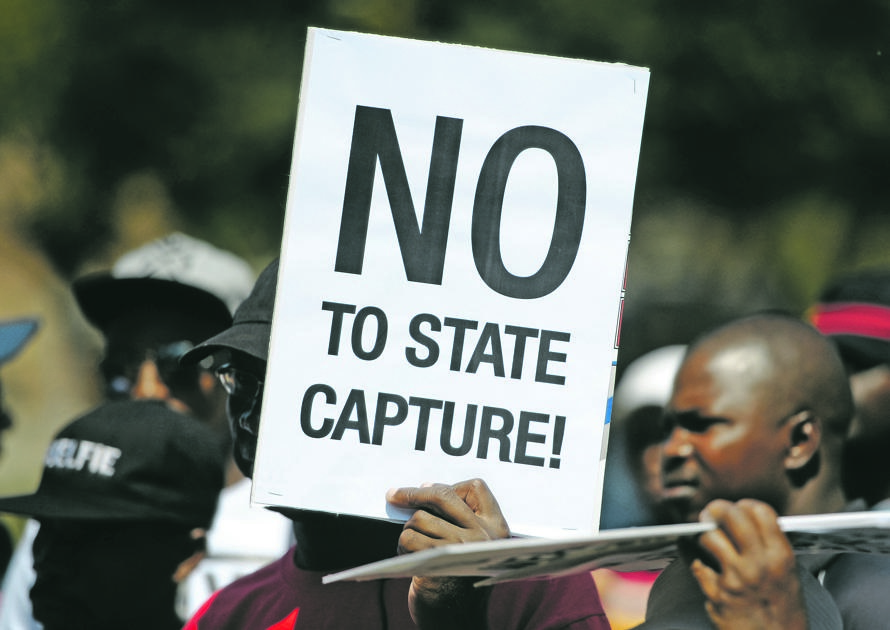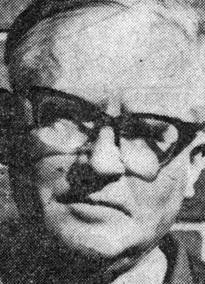
Bram Fischer refused to allow the identity he was born into to define him. We need to emulate him and stand up for what is right for our country
This year, we celebrate the centenary of the birth of Nelson Mandela and Albertina Sisulu – two inspirational leaders of our liberation movement.
To Bram Fischer, who was born 110 years ago, they were contemporaries and fellow patriots.
Bram was special – a rare mix of lawyer, activist and a person of conscience who, as a white South African of Afrikaner descent, displayed a special kind of moral and political courage to challenge and struggle against the supremacy of white minority rule over a black majority during apartheid.
He was a unique patriot, socialist and freedom fighter.
Nelson Mandela hailed Bram as “a courageous man who followed the most difficult course any person could choose to follow.
"He challenged his own people because he felt that what they were doing was morally wrong.
"As an Afrikaner whose conscience forced him to reject his own heritage and be ostracised by his own people, he showed a level of courage and sacrifice that was in a class by itself. I fought only against injustice, not against my own people.”
Bram studied in Oxford in the early 1930s and, self-critically, realised the profound inequalities between different races, the similarities between growing fascism and right-wing nationalism in Europe and Afrikaner nationalism among his own community in South Africa.
He believed that South Africa’s future ought to be inclusive and united, with equal rights enjoined by black and white.
Shortly before being sentenced to life imprisonment in 1966, Bram spoke from the dock in one of his last public speeches: “I am on trial for my political beliefs and for the conduct to which those beliefs drove me.
"Whatever labels may be attached to the 15 charges brought against me, they all arise from having been a member of the Communist Party and from my activities as a member.
"I engaged upon those activities because I believed that, in the dangerous circumstances which have been created in South Africa, it was my duty to do so.”
By his conduct, he provided progressives with principled leadership – both in ideas and action – for he truly believed that the task at hand was not only to interpret the world, but to change it.
His life embodied a fascinating dialectic between rejecting and opposing the oppressive, racist and exploitative system of apartheid, while promoting the values and principles which would become the foundations of a future South Africa.
My generation of Congress activists of the late 1960s and early 1970s developed our social conscience and political consciousness as we were the direct beneficiaries of the teachings, ideas and activism of Bram and his generation of leaders and activists.
We are once again faced with a moment in our country when identity politics and the “national question” is at the fore, when identity politics can easily lead us into a retreat from notions of universalism, progressivism and one humanity.
In 1969, with Bram Fischer already in prison, the ANC issued its Strategy and Tactics document, which acknowledged the role and status of democratic whites in the struggle for freedom: “We are revolutionaries not narrow nationalists.
"Committed revolutionaries are our brothers [sic] to whatever group they belong. There can be no second-class participants in our movement … our nationalism must not be confused … with the classical drive by an elitist group among the oppressed people to gain ascendency so that they replace the oppressor in the exploitation of the mass.”
Over the past 24 years, we have established and built institutions essential to supporting the development of our young democracy and ensuring social justice for all.
We thrived as a young democracy in our newfound freedom, proud of our place in the community of nations and the global recognition of our “miracle”.
Of this achievement, Bram would have been proud.
However, while millions of people have moved from levels of absolute poverty since 1994, South Africa faces a multitude of obstacles, not least in the performance of the economy.
The key task of our times is to transform our economy so that it enhances inclusive growth.
While we are faced with this enormous challenge, we are simultaneously confronted with the beginnings of a new phenomenon: the cancer of corruption, rent-seeking, institutional manipulation, patronage and greed.
Historically, the ANC and the majority of South Africans have been committed to a programme to fundamentally transform our economy and to ensure that the majority of our people live with dignity.
State capture, a counter-revolution, actively aimed to destroy our fledgling democracy for the benefit of a group of politically connected organised criminals whose single-minded goal was obscene self-enrichment at the expense of our beloved country.
The impact of the past few years has been devastating, not least because of a major retreat in the values embedded in our Constitution and for which leaders such as Bram Fischer and Nelson Mandela fought.
But it is equally imperative that the past decade must not define us and we must not be defeated by it.
President Cyril Ramaphosa’s New Dawn represents a determined transformation programme that seeks to reaffirm the unity of the ANC, renewal of the movement and reconstruction efforts across the state.
We are acting to turn the fortunes of our country, a central task which requires us to address the functioning of our state system.
At the core of this state infrastructure are our state-owned enterprises, and we have to deal with the past, present and future of these entities. Tackling the past requires that we recapture the entities and deal with a deep culture of corruption.
In the present, we have to address financial challenges such as revenue and expenditure, develop credible business plans and deal with duplicated mandates.
For the future of these entities, we have to understand the dynamics of changes in industry, develop new business models and address their financial sustainability.
The New Dawn also requires us to recalibrate our perspectives on ethical leadership, and to collectively introduce greater boldness of vision and urgency of action to ensure social justice for our people.
This must be predicated on an important question: Whom do I serve?
In good or bad times, is it ourselves we serve, or do we serve only particular groups? Or do we serve society as a whole? Do we serve the national good and, ultimately, do we serve, like Bram Fischer, the global good?
Ethical leadership is not the preserve of leaders only – it is the civic duty of all of us.
It is in the way we live our lives, in the way we consume and engage with the environment, in the way we regulate and advance ourselves, and in our empathetic engagement with each other as human beings.
It is the active choice of doing the right thing right.
While we are well on the trajectory of the New Dawn, the state capture era is far from over. South Africa’s magical resilience once again pulled us from the brink last year as people coalesced and fought back.
The precious strands that connect us to different communities and sectors remain brittle. We have to regain and consolidate a sense of common purpose.
Our interactions should seek to live out the words of our Constitution: “We, the people, recognise the injustices of our past … and believe that South Africa belongs to all who live in it, united in our diversity.”
Unfortunately, the hegemony of progressives appears to be no more and cannot be taken for granted.
It is being challenged by new and different ideas, new forms of organisation and new forms of internal struggle – some of which are deeply relevant, others are driven by populist sentiment.
Progressives cannot stand aside, but need to become proactively involved in a reinvigorated battle for ideas – ideas that can be translated into policy and action to improve the lives of youth, women and citizens at large.
A broad and united front of progressives must be constructed. This requires a return to the days of disciplined, politically conscious, courageous and action-oriented cadres.
This task, just like the fight against apartheid, requires leaders at all levels of society to shun all forms of chauvinism.
The success of the South African experiment of creating a society wherein the former oppressor and the former oppressed live peacefully and side by side depends on the time of leadership that was exemplified by Nelson Mandela, Oliver Tambo, Joe Slovo, Helen Joseph, Yusuf Dadoo and Bram Fischer.
Madiba said: ‘The names of only very few people are remembered beyond their lives. And some of those are remembered with revulsion for the harm they have done. But there are those who are remembered for the good deeds and contribution they have made to the society in which they live.”
Abraham Louis Fischer was one such person.
Gordhan is minister of public enterprises. This is an edited extract of the Bram Fischer Memorial Lecture he delivered at Oxford University
TALK TO US
Are there leaders among us who can ensure SA gets back on track?
SMS us on 35697 using the keyword BRAM and tell us what you think. Please include your name and province. SMSes cost R1.50. By participating, you agree to receive occasional marketing material




 Publications
Publications
 Partners
Partners









